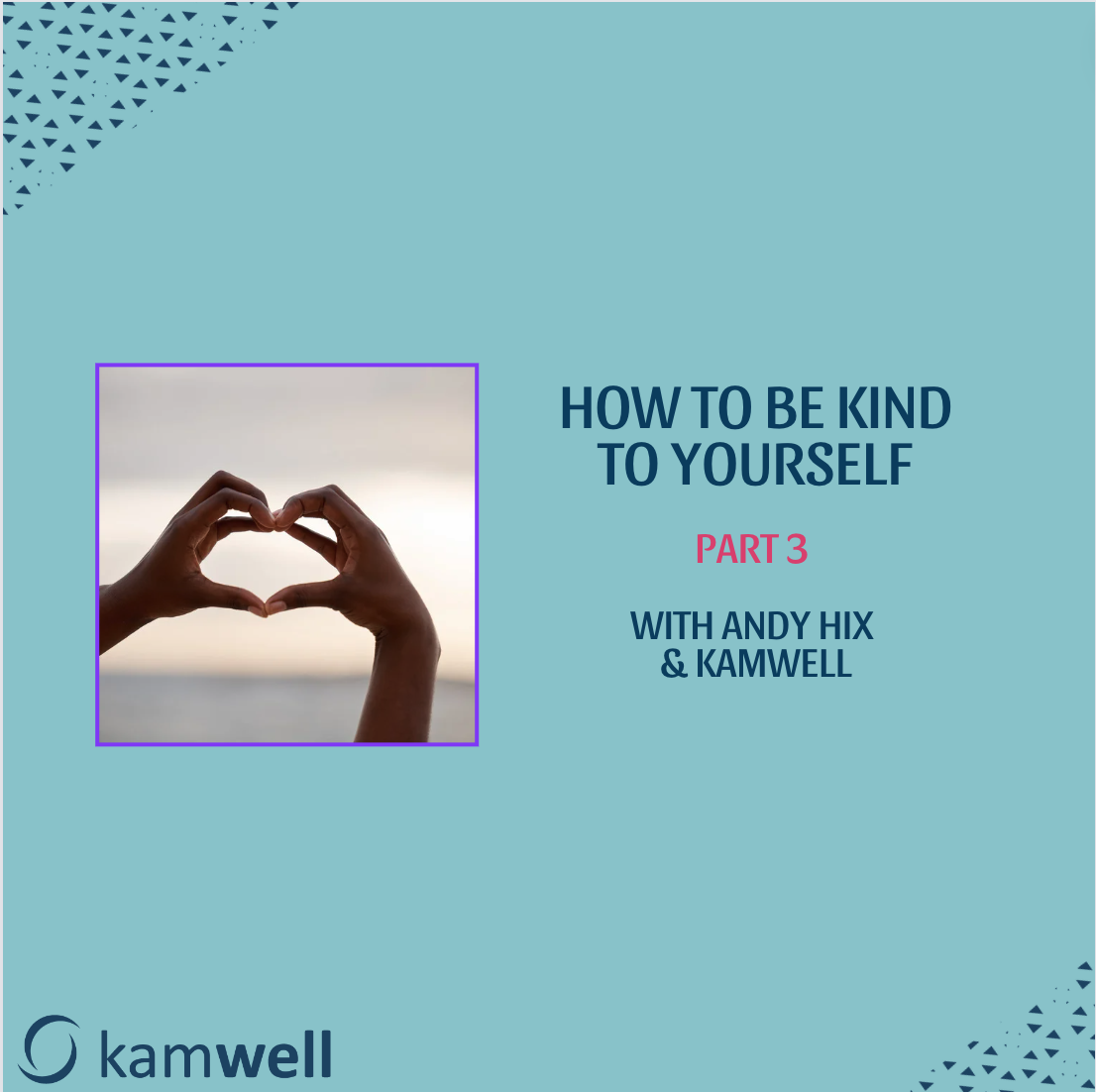
- BLOG
How to be Kind to Yourself - Part 3
The three pillars of mindful self-compassion
Mindful-Self Compassion (MSC) is an approach developed by Dr Kristen Neff, specifically to help people to change their dominant inner voice from a critical one to a kind one.
Studies have found that practicing it reduces feelings of stress, anxiety and depression. It’s one of the tools I use most frequently with clients to help them shift from “I’m not good enough” (i.e. shame) to feeling calm, relaxed and positive again.
There are three pillars of Mindful Self-Compassion set out by Dr Neff. Each one is designed to alleviate a key element of how we tend to respond to the experience of shame.
When we’re not being self-compassionate, we might deny that we’re suffering/try to ignore it, tell ourselves we’re the only one that is struggling in this way and beat ourselves up about it.
These are the three pillars that help us deal with each of these responses:
Pillar 1: Mindfulness
A very natural response to suffering is to try to get rid of it. If we’ve made a mistake at work and we’re feeling really ashamed or embarrassed, we might try to keep ourselves distracted so we don’t feel the discomfort, we might deny how we’re feeling to others and tell them we’re fine. Maybe we self-medicate with alcohol, vaping or chocolate.
This might give us some respite in the short term, but it doesn’t actually deal with the problem. You could call this approach “turning away” from the feelings. Whereas being mindful in our response means to “turn towards them”. In other words, to pay attention to how we’re feeling.
When practicing Mindful Self-Compassion, we explicitly note this unease, mentally saying to ourselves, ‘this is suffering’ or ‘this is painful’. It can also be helpful to note any physical discomfort, such as a racing heart, tension in the shoulders or clenching your jaw. This means we’re taking our suffering seriously as opposed to dismissing our feelings as unimportant.
It’s quite amazing how often just acknowledging the suffering as suffering helps us to feel better. The tension often releases, the breathing and heart rate slows down. Giving attention to yourself is an act of kindness and can provide immediate relief.
Pillar 2: Common Humanity
Shame researcher Brene Brown says that a key component of shame is thinking that we’re alone in it. We’re uniquely stupid, we’re the only ones who fail in this particular way, no one else feels as bad as we do, etc.
In a MSC practice we can counteract this by saying to ourselves things like, ‘everybody suffers, everybody feels pain, experiences failure, sometimes thinks they’re not good enough…’ the phrases can be adjusted to remind you that whatever you’re struggling with, other people do too.
It struck me recently that it’s ridiculous that we need to be reminded of this. Of course everyone suffers! How could we think otherwise? And yet we do often forget this when we’re in the depths of our own suffering, and it can be very comforting to reconnect to the universality of what we’re feeling.
Pillar 3: Kindness
To counteract that voice in our head that says things like ‘I’m so pathetic for feeling like this’ or ‘I’m so useless for failing at that’, we practice saying kind things to ourselves, like, ‘May I accept myself as I am, may I be kind to myself, may trust that I am good enough.’
It can also help to give yourself some soothing touch- put your hand on your heart and or belly and rub it gently, perhaps give yourself a hug.
Whatever I was struggling with at the start of a MSC practice has always fallen away by this point, into a sense of calm and gentle warmth towards myself. It’s simple and powerful.
Giving yourself what you can never get enough of from others
If you’re always looking for other people to notice you, accept you, give you a sense of belonging, and show you kindness, but you can’t do it for yourself, you’ll never get enough to satisfy you. It will be like trying to fill a bottomless pit.
What’s amazingly empowering about self-compassion is you are learning to meet your own needs. You can give yourself the love you’re searching for.
Coming up next…
In next week’s post, I will guide you through a MSC meditation that you call follow along with, and experience the impact for yourself.
I hope you find this approach as healing as I do.
